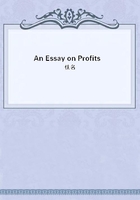The testimony of our oldest Chronicle concerning the different forms of matrimony among the eastern Slavs deserves our closest attention, because it is, in all points, confirmed by the study of the rest of our old written literature, of our epic poems, of our wedding-songs, and of the matrimonial usages and customs still or lately in existence in certain remote districts of Russia. The Drevlians are not the only Slavonic tribe to which the mediaeval chronicles ascribe a low state of morality. The same is asserted of the old Bohemians or Czechs in the account given of their manners and customs by Cosmas of Prague, a Latin annalist of the eleventh century, who says: Connubia erant illis communia. Nam more pecudum singulas ad noctes novos probant hymenaeos, et surgente aurora.... ferrea amoris rumpunt vincula."This means: "They practised communal marriage. For, like animals, they contracted each night a fresh marriage, and as soon as the dawn appeared they broke the iron bonds of love."This statement is directly confirmed by that of another medieval author, the unknown biographer of St. Adalbert. This writer ascribes the animosity of the Bohemian people towards the saint to the fact of his strong opposition to the shameful promiscuity which in his time prevailed in Bohemia. It is confirmed, also, by the monk of the Russian Abbey of Eleasar, known by the name of Pamphil, who lived in the sixteenth century.
Both speak of the existence of certain yearly festivals at which great licence prevailed. According to the last-named author, such meetings were regularly held on the borders of the State of Novgorod on the banks of rivers, resembling, in that particular, the annual festivals mentioned by Nestor. Not later than the beginning of the sixteenth century, they were complained of by the clergy of the State of Pscov. It was at that time that Pamphil drew up his letter to the Governor of the State, admonishing him to put an end to these annual gatherings, since their only result was the corruption of the young women and girls. According to the author just cited, the meetings took place, as a rule, the day before the festival of St. John the Baptist, which, in pagan times, was that of a divinity known by the name of Jarilo, corresponding to the Priapus of the Greeks.
Half a century later the new ecclesiastical code, compiled by an assembly of divines convened in Moscow by the Czar Ivan the Terrible, took effectual measures for abolishing every vestige of paganism; amongst them, the yearly festivals held on Christmas Day, on the day of the baptism of our Lord, and on St. John the Baptist, commonly called Midsummer Day. A general feature of all these festivals, according to the code, was the prevalence of the promiscuous intercourse of the sexes. How far the clergy succeeded in suppressing these yearly meetings, which had been regularly held for centuries before on the banks of rivers, we cannot precisely say, although the fact of their occasional occurrence, even in modern times, does not tend to prove their complete abolition. More than once have I had an opportunity of being present at these nightly meetings, held at the end of June, in commemoration of a heathen divinity. They usually take place close to a river or pond; large fires are lighted, and over them young couples, bachelors and unmarried girls, jump barefoot. Ihave never found any trace of licentiousness; but there is no doubt that cases of licence do occur, though seldom in our time.
That a few centuries ago they were very frequent has been lately proved by some curious documents preserved in the archives of some of the provincial ecclesiastical councils, particularly in those existing in the Government of Kharkov. According to these documents, the local clergy were engaged in constant warfare with the shameful licentiousness which prevailed at the evening assembles of the peasants, and more than once the clergy succeeded in inducing the authorities of the village to dissolve the assemblies by force. The priests were often wounded, and obliged to seek refuge in the houses of the village elders from the stones with which they were pelted. These evening assemblies are known to the people of Great Russia under the name of Posidelki, and to the Little Russians by that of Vechernitzi.
The licentiousness which formed the characteristic feature of these meetings throws light on the motives which induce the peasants of certain Great Russian communes to attach but small importance to virginity. Russian ethnographers have not infrequently mentioned the fact of young men living openly with unmarried women, and, even in case of marriage, of giving preference to those who were known to have already been mothers.
However peculiar all these facts may seem, they are very often met with among people of quite a distinct race. The Allemanic populations of the Grisons, no longer ago than the sixteenth century, held regular meetings which were not less shameful than those of the Cossacks. The Kilbenen were abolished, by law (3*) but another custom, in direct antagonism to morality, continued to exist all over the northern cantons of Switzerland and in the southern provinces of Wurtemberg and of Baden. I mean the custom known under the name of Kirchgang or Dorfgehen, which, according to the popular songs, consisted in nothing else than the right of a bachelor to become the lover of some young girl, and that quite openly, and with the implied consent of the parents of his sweetheart. May I also mention a similar custom amongst the Welsh, known as "bundling"? I am not well enough informed as to the character of this custom to insist on its resemblance to those already mentioned. The little I have said on the German survivals of early licence may suffice to establish this general conclusion: that the comparative immorality of Russian peasants has no other cause than the survival amongst them of numerous vestiges of the early forms of marriage.















